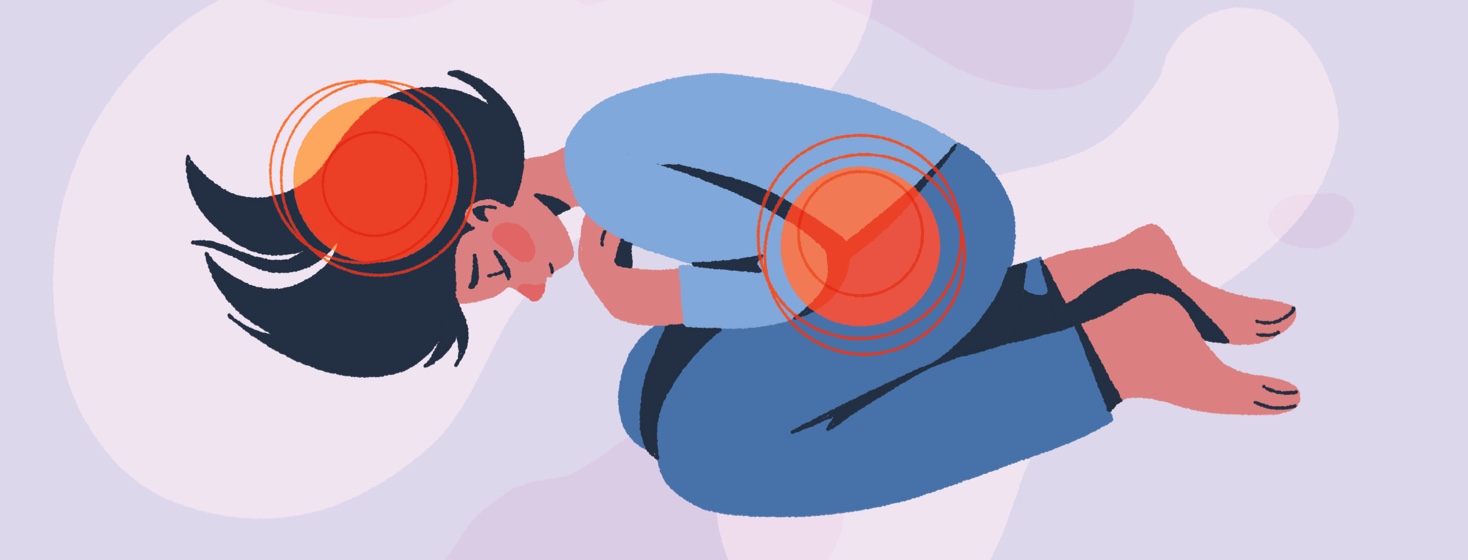Endometriosis, Migraines, and Estrogen
It always seems that health issues come in multiples. My introduction to chronic health conditions started with endometriosis at the age of 14.
While I have always been familiar with episodic migraines, mainly stress-induced, I developed chronic migraines at the age of 20. To this day, doctors have not been able to give me an exact reason as to why my migraines became chronic.
Young with endometriosis symptoms
It was a massive challenge to get the proper treatment for my endometriosis. My mother took me to see so many doctors.
At the time, most gynecologists refused to believe that a minor could have endometriosis. This led to doctors saying I was just feeling normal period pain and that I was depressed.
At the age of 14, I had doctors telling me that my pain was just in my head. I was lucky that my mom believed me since had issues with endometriosis herself earlier in her life.
Treatment with surgery and medications
We spent a year trying various birth control pills and antidepressants. We eventually found a group of doctors who took my case seriously and laparoscopic surgery was scheduled quickly.
Immediately after the surgery, the doctors started me on Lupron injections. Lupron is a medication that puts the body into pseudo-menopause.
The medication manages this by telling the ovaries to stop producing estrogen. I stayed on this treatment plan for around two years.
Nowadays it is well known that you should not stay on it very long because lack of estrogen causes loss of bone density.
The next specialist I started seeing took me off the Lupron. He had me start taking Norethindrone and using a very low-dose estradiol patch.
Additionally, I had to take medication for osteoporosis because my bone density was extremely low due to being on Lupron for so long. I stayed on this hormone combination for another 13 or so years.
The entire time I was on this treatment plan, I did not have a period and my pain was much more manageable.
Managing my migraines
Since my migraines become chronic, I have tried a host of preventative and abortive treatment options. These treatments included Botox and a trial for the STIM device.
In all my years of dealing with endometriosis and chronic migraines, I never had a neurologist suggest trying to change my hormones. Years after proceeding with a hysterectomy, I learned there was a chance that my hormone levels or artificial hormone intake were influencing my migraines.
Starting hormonal therapy
Many individuals believe that a hysterectomy will ‘cure’ endometriosis. Unfortunately, there is no cure for endometriosis. A hysterectomy is considered only after individuals have tried hormone therapy and laparoscopic surgery1.
When I was considering my hysterectomy, I never had a doctor bring up the potential effects it could have on my migraines. Statistics show that when women go into menopause naturally, two-thirds find that they experience migraine relief2.
On the other hand, only one-third of women find migraine relief when they go into surgical menopause2. Luckily, at the time of my surgery, I was already taking an oral migraine preventative.
I do not feel like my migraines worsened after my hysterectomy.
The ovaries control the production of estrogen and progesterone. A complete withdrawal of estrogen is what can cause increased migraine issues for some women.
To combat this, it is suggested that women use an estrogen add-back therapy, preferably in the form of a patch1. I initially used a vaginal estrogen cream because I had severe menopause symptoms shortly after recovering from my hysterectomy.
We changed it from the cream to an oral estrogen pill, which was a bad choice. Finally, a new doctor put me on the estrogen patch.
Thankfully this is helping me deal with some recurrent endometriosis problems and menopause symptoms.
Reoccuring symptoms after hysterectomy
My hysterectomy gave me relief from my endometriosis for about two years. Eventually, I started having recurrent endometriosis pain.
As mentioned earlier, the estrogen patch (and a prescription anti-inflammatory) is helping me manage the pain. If this starts to stop working, another laparoscopic surgery will be in my future.
I have to say that I was lucky that my hysterectomy did not increase my migraines. Especially since I would not have been prepared for my migraines to become worse.
Despite this, I believe this information should be more available to individuals who may be considering a hysterectomy for endometriosis treatment.

Join the conversation